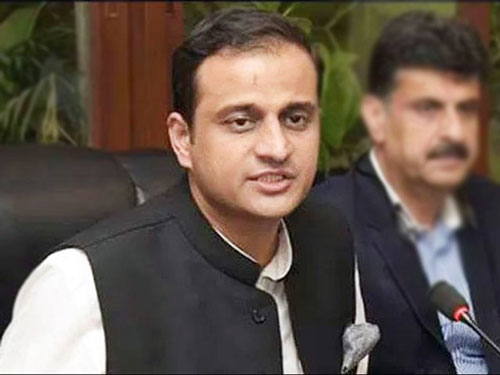The Karachi Metropolitan Corporation (KMC) and K-Electric (KE) have been under fire of late since the former authorised the latter to collect municipal utility charges and tax (MUTC) from the people of Karachi through the power bills.
Critics of the new mechanism for the MUCT collection argue that the KMC and Sindh government have largely failed to deliver in the city, and now forcing the people to pay municipal charges through their electricity bills, which will result in power disconnection in case of non-payment, is nothing but sheer injustice.
On the contrary, the KMC administration is of the opinion that no new tax has been imposed, and only the collection mechanism of an old tax had been changed. “This tax collection will be game changer for Karachi,” KMC Administrator Murtaza Wahab said as he spoke to The News.
With the collection of MUTC through the KE power bills, the cash-starved KMC would get Rs3 billion annually which would help the corporation develop the city’s infrastructure, said a KMC official.
As per an agreement signed between the KMC and KE, the power utility would collect the tax from 24 million units across the city and keep seven per cent of the amount as its collection charges, which amounts to Rs300 million.
The MUCT would be collected based on the volume of power bills. For 200 units, Rs50 would be collected. For more units, Rs150 to Rs200 would be collected.
An official of the KMC had earlier told The News that it had initially been decided that the industrial units would pay Rs5,000 each in the MUCT head, but now the amount had been reduced to Rs200 for them as well.
Except the Pakistan People’s Party that has allowed the KE to collect municipal taxes, all the major political stakeholders of Karachi have, however, rejected the new tax collection mechanism. The Jamaat-e-Islami has even approached the Sindh High Court against it.
Former Karachi mayor and Muttahida Qaumi Movement-Pakistan leader Wasim Akhtar pointed out that when there was the elected City District Government Karachi (CDGK) and he was the mayor, the city council was responsible for water and sanitation, garbage and even building control functions against the municipal charges.
Akhtar remarked that it was sheer injustice to threaten the public with cutting off their power supply in case they did not pay tax to the KMC when they were not being served at all.
The KMC, he said, was already collecting motor vehicle tax, property tax, betterment charges, but the citizens were not getting civic facilities. There was no proper sanitation, no road infrastructure in the city, he stressed.
The KMC, he pointed out, did not have control over the Karachi Water and Sewerage Board (KWSB), Sindh Building Control Authority (SBCA) and Sindh Solid Waste Management Board (SSWMB).
Akhtar concluded that the decision to collect MUCT through a private company should have been taken by an elected city council, not an appointed administrator. “The collection of the KMC’s taxes is not the KE’s domain. People of Karachi already have resentment against the power utility,” he summed up.
Responding to Akhtar’s criticism, Wahab said that the former mayor had during his mayoral tenure hired a private company Sprint Pvt Ltd for MUCT collection in 2017.
Commenting on fears related to possible misappropriation of MUCT, the KMC administrator maintained that the KE was a public limited company regulated by the National Electric Power Regulator Authority, and as per the law, it had to make its balance sheet public law.
Back in 2017, Akhtar used to collect Rs200 million under MUCT, and now it was being collected through the power bills, Wahab said, adding that the KMC would get Rs3 billion annually through the new tax collection mechanism, which would be a game changer for Karachi.
He asserted that the decision would make the KMC financially stable. In the tenures of Mustufa Kamal, Jamaat-e-Islami’s Niamatullah Khan and even in Akhtar’s mayoral tenure, the KMC City Council was dependent on funds from the provincial and federal governments, he said.
When asked if it would be ensured that Rs3 billion would be allocated on development expenditures only, Wahab said it would be at the discretion of the next elected council.
He explained that currently, his administration had decided to spend 55 to 60 per cent of the amount on the city’s infrastructure development such as construction and repair of roads, bridges and underpasses, 15 per cent on parks, 15 per cent on street lights and footpaths and 10 per cent on the administrative expenses of the KMC.










